CRITICAL ISSUES in HEALTHCARE POLICY and POLITICS in the GULF COOPERATION COUNCIL STATES
CRITICAL ISSUES in HEALTHCARE POLICY and POLITICS in the GULF COOPERATION COUNCIL STATES
Ravinder Mamtani, MD
Albert B. Lowenfels, MD
Editors
Published in Cooperation with the Center for International and Regional Studies, Georgetown University in Qatar
2017 Georgetown University Press. All rights reserved. No part of this book may be reproduced or utilized in any form or by any means, electronic or mechanical, including photocopying and recording, or by any information storage and retrieval system, without permission in writing from the publisher.
The publisher is not responsible for third-party websites or their content. URL links were active at time of publication.
Library of Congress Cataloging-in-Publication Data
Names: Mamtani, Ravinder, editor. | Lowenfels, Albert B., editor.
Title: Critical Issues in Healthcare Policy and Politics in the Gulf Cooperation Council States / Ravinder Mamtani and Albert B. Lowenfels, editors.
Description: Washington, DC : Georgetown University Press, 2017. | Includes bibliographical references and index. | Description based on print version record and CIP data provided by publisher; resource not viewed.
Identifiers: LCCN 2017008734 (print) | LCCN 2017011974 (ebook) | ISBN 9781626165007 (hc : alk. paper) | ISBN 9781626165014 (pb : alk. paper) | ISBN 9781626165021 (eb)
Subjects: LCSH: Medical policy--Persian Gulf Region. | Medical care--Persian Gulf Region.
Classification: LCC RA395.P39 (ebook) | LCC RA395.P39 C75 2017 (print) | DDC 362.10953--dc23
LC record available at https://lccn.loc.gov/2017008734

This book is printed on acid-free paper meeting the requirements of the American National Standard for Permanence in Paper for Printed Library Materials.
18 179 8 7 6 5 4 3 2 First printing
Printed in the United States of America
Cover design by 4eyesdesign
Cover images by iStock (Cleveland Clinic in Abu Dhabi by typhoonski) and Shutterstock (Arabic door by kaitshot)
CONTENTS
Javaid Sheikh
Ravinder Mamtani and Albert B. Lowenfels
Nabil M. Kronfol
Dionysis Markakis
Mohamad Alameddine, Nour Kik, Rami Yassoub, and Yara Mourad
Suhaila Ghuloum and Hassen Al-Amin
Samir Al-Adawi
Cother Hajat
Albert B. Lowenfels and Ravinder Mamtani
Ravinder Mamtani, Albert B. Lowenfels, and Sohaila Cheema
FOREWORD
Although recent scholarship has drawn attention to educational developments in the Gulf Cooperation Council (GCC) states, similar contributions addressing health policy development and implementation in the region are largely lacking. Most recent work on healthcare systems in the Middle East, North Africa, and the Gulf countries consists of reports compiled by consulting firms such as Booz & Company, McKinsey & Company, and Alpen Capital. And though such reports focus on how existing healthcare structures can be transformed into modern healthcare systems, they lack academic rigor and tend to ignore larger, policy-related issues. As for the social scientists, there has been a striking dearth of contributions addressing policies and practices of healthcare systems of different states.
The Eastern Mediterranean Health Journal, the flagship health periodical of the World Health Organization, regularly publishes highly technical articles related to very specific case studies of a particular health-related issue in a subset of a population, including groups in Saudi Arabia. However, little has been published that addresses healthcare policy and politics from an academic perspective. A recent series in The Lancet titled Health in the Arab World: A View from Within (February 2014) provides a fairly comprehensive look at healthcare in the Arab world but does not present much data from the Gulf region. Similarly, Public Health in the Arab Worldan edited volume published in 2012 by Cambridge University Pressfocuses on the non-Gulf Arab countries. The present volume is unique in that it focuses exclusively on the states of the GCC and will contribute much-needed comprehensive analyses of healthcare policy and politics in these states.
This book emerged from two workshops organized by the Center for International and Regional Studies at Georgetown University in Qatar, and it represents a combined effort by the Qatar campuses of Georgetowns Walsh School of Foreign Service and Weill Cornell MedicineQatar. The collaborative effort involving all the contributors to this volume was enhanced by intensive consultations with other specialist colleagues to improve the focus and depth of the chapters analyses. The result of this comprehensive collaboration is a volume in which each individual chapter presents a study that is an original work of scholarship making a significant contribution to the field.
This book provides a much-needed perspective on healthcare policy and politics in the GCC states, and contextualizes the efforts and the challenges they have encountered in modernizing their healthcare systems. It should be essential reading for academics, scholars, policymakers, and students interested in learning about the GCC states current thinking on health policymaking, and the latest information on systemic efforts to transform health systems in the region. The book is also likely to appeal to practicing health professionals and other key actors in the healthcare sector in the GCC. Last but not least, this volume will be of interest to a large number of expatriates who are interested in the underlying themes that are shaping healthcare policy and practice within the region.
Javaid Sheikh, MD
Dean, Weill Cornell MedicineQatar
Doha
ACKNOWLEDGMENTS
Many people have generously contributed their time in the planning and preparation of this book. We are very grateful to all the authors for their contributions, cooperation, and responses to the editorial suggestions.
Our appreciation goes to many of our colleagues at Georgetown University in Qatar and Weill Cornell MedicineQatar who have helped with and guided many editing and administrative aspects in the assembly of our final manuscript. We would like to specifically thank Marco Ameduri, Raji Anand, Zahra Babar, Doris Lowenfels, Jaishree Mamtani, and Alan Weber. The editing and formatting assistance that was provided by Laura-Louise Fairley is also greatly appreciated.
Particular gratitude is owed to Mehran Kamrava, director of the Center for International and Regional Studies at Georgetown University in Qatar, who was the main force in conceptualizing the theme of this book, initiating discussions and workshops on its contents, and continuing to provide invaluable guidance at every stage of its evolution. The book would never have been written without his help.
Javaid Sheikh, MD, dean of Weill Cornell MedicineQatar, deserves our special thanks for his guidance and energetic support. As an experienced medical educator and a renowned healthcare executive, he was particularly helpful in ensuring that the contents of this book reflect a wide range of viewpoints.

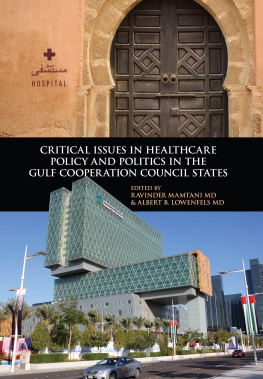

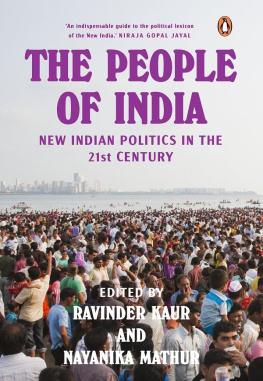

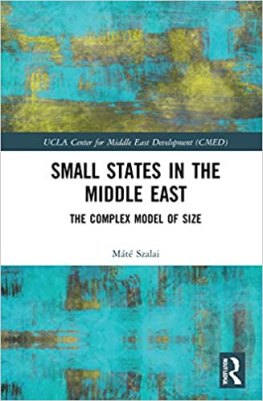
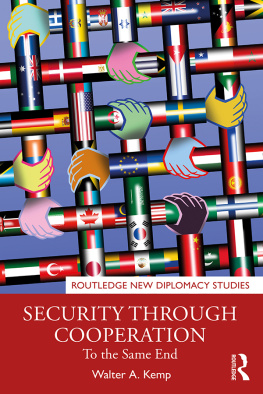
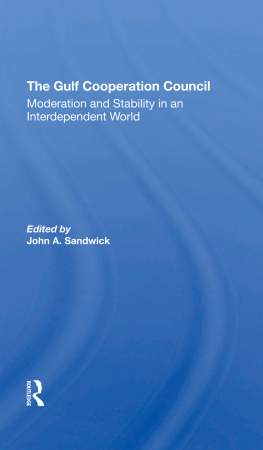

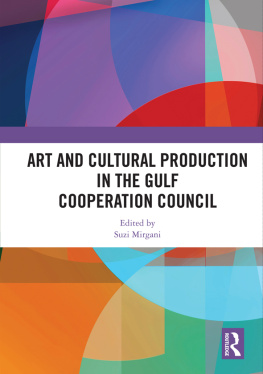

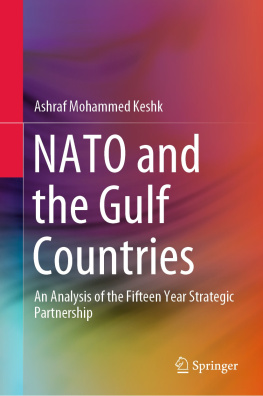
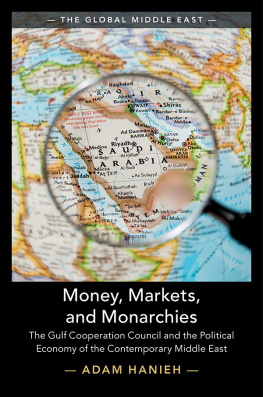
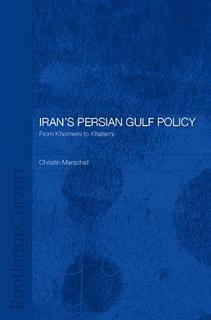



 This book is printed on acid-free paper meeting the requirements of the American National Standard for Permanence in Paper for Printed Library Materials.
This book is printed on acid-free paper meeting the requirements of the American National Standard for Permanence in Paper for Printed Library Materials.